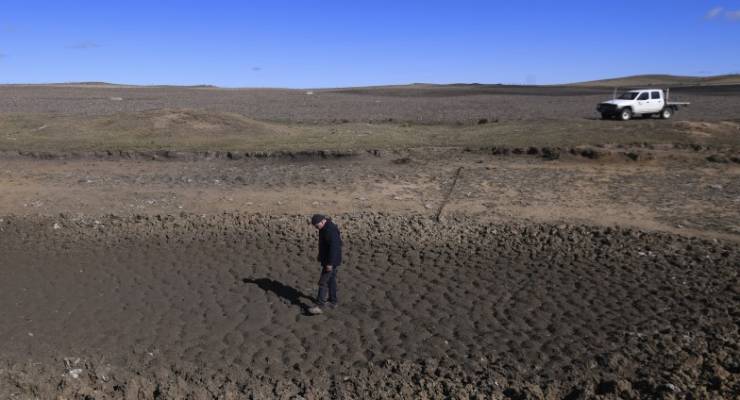
It’s tough being a Liberal when the electorate — as it does periodically — decides climate action is necessary and politicians opposed to it should be turfed out.
This past summer, which has seen an array of new heat records and devastating fires and floods, has once again made climate inaction unacceptable to voters. Climate denialists have to keep their heads down; moderates have to subtly suggest they’d like to go further, and those who believe in nothing will utter whatever talking points sound best.
Take Dave Sharma, the Liberal candidate from central casting (and — more fatally — the North Shore) who lost Wentworth to Kerryn Phelps on climate change and asylum seekers. Sharma is going around again against Phelps and clearly feels the need to more strongly signal his climate change credentials than last time by urging greater, though suitably vague, action. He also suggests there’s “plenty of blame to go around on all sides” for Australia’s dismal record on climate policy.
Well, actually, Dave, there isn’t — the blame extends strictly to the Liberals and the Nationals, who went to the 2007 election promising the world’s most comprehensive emissions trading scheme and then refused to support Labor’s much more limited scheme, who twice dumped Malcolm Turnbull over climate policy, who opposed and lied systematically about the impacts of the Gillard government’s carbon pricing scheme, and who rejected any bipartisanship on climate despite Labor abandoning carbon pricing and agreeing to support each, successively worse, scheme the Turnbull government came up with.
Or there’s Scott Morrison. Morrison leads a denialist government. Whether he’s personally a denialist isn’t clear. More likely, he doesn’t believe in anything much. Thus his backyard barbie-level insights into climate change on 7.30 last night. Pressed by Leigh Sales on how, exactly, climate change would affect the Australian economy, Morrison offered that climate “impacts everything from our farming operations, our agricultural sector right across our marine environment so obviously the climate has an enormous impact on life in Australia as we know it as it has for hundreds of years indeed tens of thousands of years.”
Such forensic analysis from the country’s leader doesn’t augur well for proper climate policy — thus the reheating of the wretched Abbott-era Direct Inaction policy. Morrison was keen to shift from Sales’ focus on climate impacts onto the fact that Australia provides only a tiny proportion of the world’s emissions and that we were meeting our own self-identified targets so, hey, what could he do?
The repeated insistence that Australia is responsible for only 1.3% of global emissions is one of the great furphies of the climate debate here. Not because it’s not true, but because it’s irrelevant: we might be a bit player in terms of total emissions (we’re champions in per capita emissions, of course) but we’re also the developed economy most at risk from climate change. No other developed economy faces such serious impacts on its economy, key industries and infrastructure as Australia — from reduced agricultural output, greater disease, more severe and more frequent weather events and greater exposure to rising sea levels.
What Morrison could have said was “we may only be 1.3% of global emissions but we have a vested interest in ensuring that other countries, and especially big polluters, accelerate their efforts to reduce emissions. And we can’t do that while failing to reduce our own emissions. How can we say to China and India that they should take major steps to reduce emissions in their crucial economic sectors when we won’t do the same, despite being much wealthier? We have to lead on climate action, because the stakes for Australia — and our regional neighbours — are too high.”
If Morrison had said that as he took Direct Action out of the policy microwave and offered it up to voters again (with the bizarre, apparently unthinking support of Nine’s newspaper journalists), he might have appeared credible and practical, a leader willing to accept reality no matter how inconvenient. One prepared to put aside a decade of denialism from his party and engage pragmatically with a key challenge facing Australia.
As it stands, he looks like a desperate politician trailing in the polls with less than three months til an election.








Crikey is committed to hosting lively discussions. Help us keep the conversation useful, interesting and welcoming. We aim to publish comments quickly in the interest of promoting robust conversation, but we’re a small team and we deploy filters to protect against legal risk. Occasionally your comment may be held up while we review, but we’re working as fast as we can to keep the conversation rolling.
The Crikey comment section is members-only content. Please subscribe to leave a comment.
The Crikey comment section is members-only content. Please login to leave a comment.